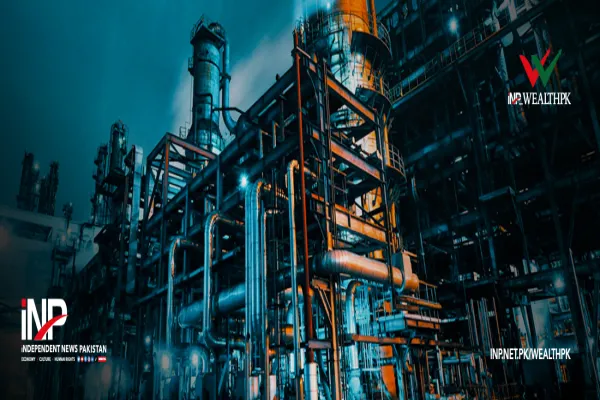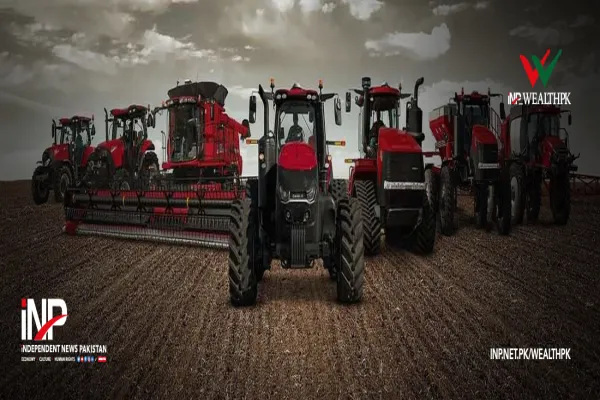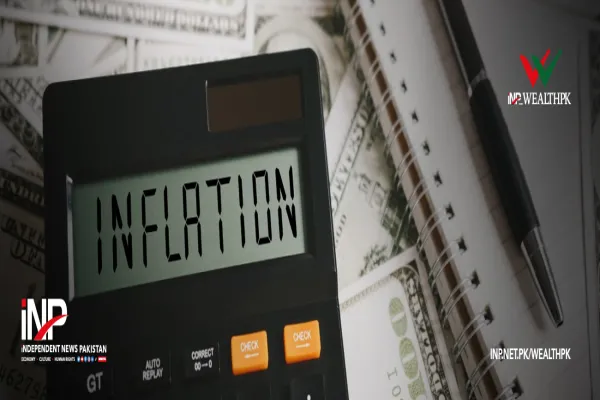i INP-WEALTHPK
Azeem Ahmed Khan
Pakistan’s tractor manufacturing sector has witnessed a significant slowdown, with production falling to 23,814 units during July-March 2024-25 compared to 36,385 units produced in the same period of the previous fiscal, reflecting a decline of 34.6%, reports Wealth Pakistan.
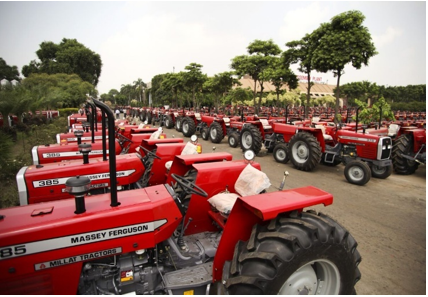
According to the Ministry of Finance, the sector’s performance has remained inconsistent, with production swinging between highs and lows. After peaking at over 53,499 units in 2016-17 and 52,551 in 2017-18, the output slumped to 37,457 units in 2018-19 and further down to 32,451 units in 2019-20.
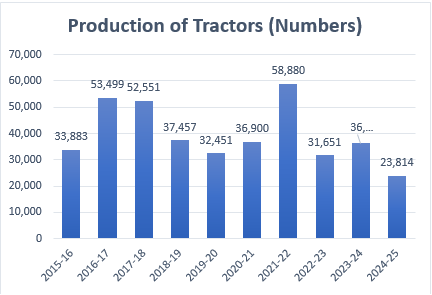
Tractor sales rebounded modestly in 2020–21, reaching 36,900 units, before surging to 58,880 in 2021–22.
The production dropped to 23,814 units in fiscal year 2024-25, the lowest in 10 years. This marks a significant fall compared to 36,385 units produced in 2023-24 and 58,880 units in 2021-22, the highest output in 10 years.
A key barrier to boosting agricultural productivity is the limited availability of tractors and other farm machinery. Pakistan’s domestic tractor industry has played a key role in meeting farmers’ mechanization needs, with over 714,000 tractors currently in operation across the country, according to the Pakistan Economic Survey 2024-25.
During 2023-24, the total tractor production reached 36,385 compared to 31,651 produced the previous year, showing an increase of 14.95 percent due to rapid growth in agricultural land reclamation after the 2022 floods. The industry has shown resilience despite periods of slowdown, particularly during the COVID-19 pandemic in 2019-20, when production slumped to 32,451 units and saw only a modest recovery in 2020-21 with 36,900 units.
However, the sharp drops in 2022-23 and 2024-25, followed by a limited recovery in 2023-24, indicates that the industry still faces challenges. The government has taken several steps to promote farm mechanization and attract investment in the industry.
To modernize agriculture, the government in 2022–23 allowed the import of tractors up to five years old with reduced duties. The incentive package also cut the Completely Knocked Down (CKD) duty for new tractor manufacturers from 35% to 15%, while the General Sales Tax on tractors was withdrawn. Additionally, customs duties on agricultural machinery and equipment were exempted to encourage mechanized farming across the country, the survey said.
Meanwhile, the Punjab government has also introduced a major initiative to support small farmers by providing around 30,000 modern tractors at subsidized rates through a balloting scheme. As agriculture remains the backbone of Pakistan’s economy, the tractor manufacturing industry continues to serve as a key indicator of rural development and investment activity.
According to experts, as Pakistan works to modernize its agriculture and boost productivity, maintaining a strong and reliable tractor manufacturing base will be crucial. They said that consistent policy support, easier financing for farmers, and incentives for local production are vital to sustaining growth in the sector.
They emphasized that stabilizing Pakistan’s tractor industry is vital for boosting farm productivity and safeguarding food security, as more than 90% of the farmers are smallholders, who continue to face limited access to modern farm machinery.
Credit: INP-WealthPk






